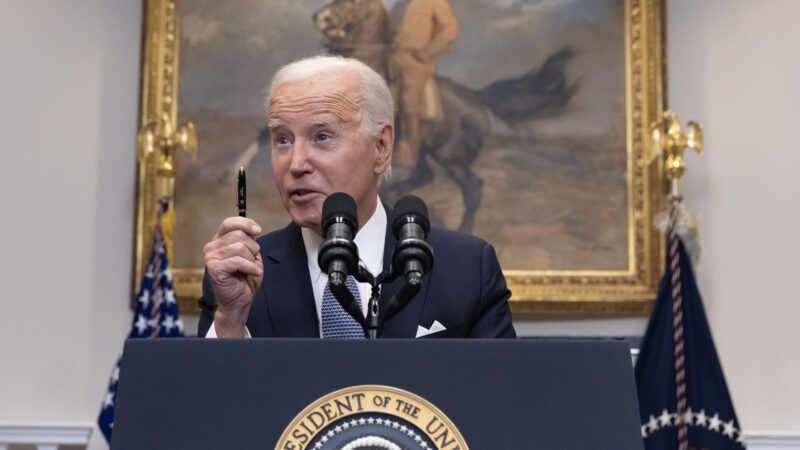Can Biden's New Student Loan Program Be Stopped?
Several lawsuits are attempting to stop the SAVE program but with uncertain impact.

Nearly a year ago, President Joe Biden's sweeping one-time student loan forgiveness plan was struck down by the Supreme Court. That setback, however, hasn't kept the Biden administration from enacting a plan to forgive billions in student loans.
In 2022, the Education Department unveiled a new, incredibly generous income-driven repayment (IDR) plan that allows many students to receive federal loan forgiveness more than a decade sooner than other similar programs. Several groups sued to stop the new plan's implementation, but a federal judge ruled last week that all but three suing states didn't have standing in the case.
Another, more impactful decision—this time on whether to grant a preliminary injunction in a different, similar lawsuit seeking to halt the program—is expected in the coming weeks from the District Court of the Eastern District of Missouri.
Biden's new IDR plan, called the SAVE plan, is extremely generous—much more so than the REPAYE plan, its predecessor. Under REPAYE, borrowers were required to contribute monthly payments of 10 percent of their discretionary income (calculated as all income above 150 percent of the federal poverty line). Forgiveness would then be granted after 20 or 25 years of consistent payments depending on the kind of loans the borrower originally took out.
In contrast, the SAVE plan only requires payments of 5 percent of discretionary income, now calculated as earnings above 225 percent of the federal poverty line. Borrowers with balances of less than $12,000 will then receive forgiveness after just 10 years of payments—with late and incomplete payments counting toward the total.
According to the Penn Wharton Budget Model, the program is estimated to cost taxpayers as much as $360 billion over the next decade, nearly as much as the $400 billion price tag for Biden's one-time forgiveness plan.
In March, a group of 11 states sued to halt the implementation of the SAVE plan, arguing that the SAVE plan is "a second attempt to avoid Congress and pass an illegal student debt forgiveness." However, a federal judge found that just three states, South Carolina, Texas, and Alaska, had standing to bring the lawsuit.
The legal effort against the SAVE program is far from over. Earlier this month, a federal court heard oral arguments in a similar lawsuit, headed by Missouri, attempting to halt implementation of the SAVE plan.


Show Comments (17)